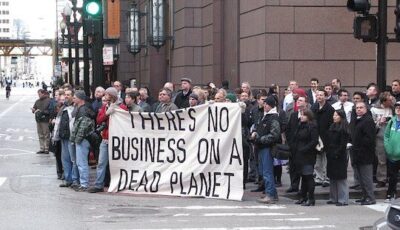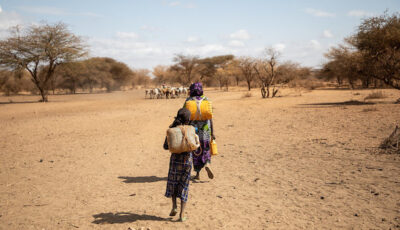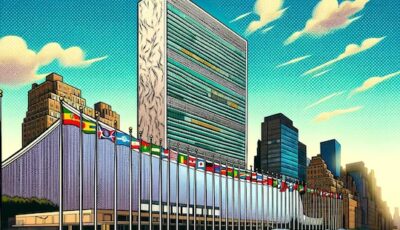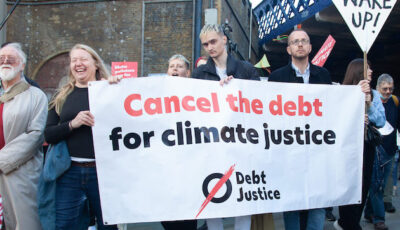How do we promote human wellbeing while also safeguarding our planet? To achieve both, we have no option but to drastically reduce inequality, argues Kate Pickett for the LSE.
When we published The Spirit Level in 2009, we hoped that by setting out the pervasive effects of inequality, linking it to a wide range of health and social ills – everything from mental ill health to increased rates of imprisonment, low social mobility and high infant mortality – the research evidence would act as a clarion call for a new era of redistributive policies and equality-focused politics. Instead, we got austerity, Brexit, war and conflict, a global pandemic and a cost-of-living crisis. Progress was emphatically not made.
There has, however, been some progress in recognition of the problem of inequality over the last fifteen or so years. It is increasingly clear that the world cannot afford the super-wealthy.
Things are heating up
The richest 1% emit 100 times as much greenhouse gas emissions as the typical person in the poorest half of the world’s population. Shrinking their massive environmental footprint needs to be seen as indispensable to confronting the climate crisis. But on top of that, the consumption of the rich has been shown to lead to processes of emulation and increasing consumption of status goods. Research shows that consumption of status goods is higher in more unequal countries: anxieties about status increase and advertisers play endlessly on our concern for status and self-presentation.
Inequalities of income, wealth and political power sit at the heart of the multiple environmental crises we are facing. The myth that “we’re all in this together” was dispelled by UN Secretary-General António Guterres who explained: “while we are all floating on the same sea, it’s clear that some are in super yachts, while others are clinging to the drifting debris”.
When nearly 8 billion people and 5 billion species share the Earth’s resources, we cannot blindly pursue economic growth while staying within our planetary limits. This is why, when we decided to update The Spirit Level analyses, fifteen years on, we decided to look at environmental issues, as well as the health and social problems that had been our original focus.
Figure 1: Environmental problems are strongly associated with income inequality

Our new Index of Environmental Problems shows that more unequal rich countries perform worse when it comes to the environment (Figure 1). The Index contains five variables: air pollution; recycling of waste materials; the carbon emissions of the rich; progress towards the United Nations Sustainable Development Goals; and international cooperation (UN treaties ratified and avoidance of unilateral coercive measures).
Planetary health demands less unequal societies
We know that we need to do much more to address environmental problems, and we know that climate change and environmental degradation does not affect everyone equally. Vulnerable populations, and low- and middle-income countries, bear the brunt of it, highlighting the need for a just transition. The move towards sustainability will be met with widespread opposition unless people feel that the inevitable burdens of change, and the policies necessary to drive them forward, are fairly shared.
Higher income inequality reduces political and social cohesion and the willingness to support environmental initiatives. By contrast, greater equality leads to a more cooperative and mutually supportive population. For example, our recent analysis, using data from the Integrated World Values Survey and European Values Survey, found that the public are more likely to favour protecting the environment over economic growth in more equal countries. In less unequal Sweden, 85% of people are in favour of protecting the environment over pursuing economic growth, while in the USA only 50% of people feel the same. Meanwhile, research has shown that workers in sectors such as manufacturing and transport are often less likely to prioritise environmental protection, but that trade union membership significantly increases their willingness, and trade union membership is closely linked to greater economic equality.
The consumption patterns of the extremely affluent – characterised by yachts, private aircrafts, multiple vehicles and enormous houses that require significant energy to run – contribute thousands of tonnes of CO2 per rich individual annually, with emerging space tourism marking a new peak in luxury emissions and planetary damage. Put simply, we cannot afford the super-rich.
But it isn’t just them. The over-consumption of affluent nations, and the relatively well-off within all nations, contribute to our planetary woes. In the EU and UK, the poorest 50% of the population are on track to lower their emissions to the 1.5⁰C per capita target in the Paris Agreement, while the wealthiest 10% are forecasted to continue to consume at a rate that is five to six times higher. Over-consumption and consumerism, then, is a major threat to sustainability. This is driven by the status insecurity (and status competition), in turn underpinned by the status anxieties created by economic inequality. No wonder we are making so little progress towards meeting the UN Sustainable Development Goals, and that the more unequal countries are noticeably lagging behind.
Ultimately, we must safeguard our planet and guarantee wellbeing for all, and doing that demands that we drastically reduce inequality, take bold action against climate change, and fundamentally alter our economic objectives.
This is the first in a series of posts that renew analysis from The Spirit Level – a book which sparked public debate about inequality upon its publication in 2009. For more information, see The Spirit Level at 15 resources published by The Equality Trust.
Kate Pickett is Professor of Epidemiology in the Department of Health Sciences at the University of York, and the University’s Champion for Research on Justice and Equality; she is a Fellow of the RSA and of the UK Faculty of Public Health. Kate’s research focuses on the social determinants of health and health inequalities, with a particular interest in child development. Kate is co-author, with Richard Wilkinson, of the bestselling books, The Spirit Level (2009) and The Inner Level (2018). Kate is also a co-founder and trustee of The Equality Trust and a global Ambassador for the Wellbeing Economy Alliance.
Original source: LSE
Image credit: David Syphers, Unsplash





